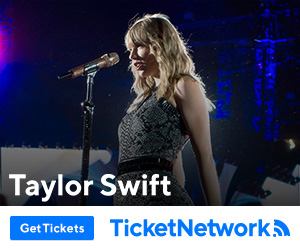The Differences in Watching College Sports vs Professional Sports
The Differences in Watching College Sports vs Professional Sports

The differences between watching college sports vs professional sports. I am a sports fanatic so I enjoy watching most things sports related. However, I enjoy watching regular season college basketball much more than regular season NBA. Unjustly perceived or not, the effort and intensity level seems to increase in the NBA during the playoffs. Sure they play more games, but they also get paid a lot more money. Not picking on the NBA, but you get my point.
Every sport is different and everybody has and is due their own opinions on the subject. College sports and professional sports are very much alike and yet very different. I thought it would be interesting to look at some of the comparisons from a viewer’s (fan’s)standpoint.
Sports enthusiasts often debate which is more exciting: college sports or professional sports. This discussion isn’t just about the games themselves. It also involves aspects like viewership, ticket sales, talent levels, and perceived effort from the athletes. This blog will delve into “The Differences in Watching College Sports vs Professional Sports” by examining these critical areas.
TV Viewership
When it comes to television viewership, professional sports typically dominate the ratings. Major events like the Super Bowl, NBA Finals, and World Series attract millions of viewers worldwide. These events have become cultural phenomena, drawing in not only dedicated fans but also casual viewers who tune in for the excitement and entertainment.
In contrast, college sports viewership is often driven by regional loyalty and school spirit. College football, particularly during bowl season and the College Football Playoff, garners substantial ratings. March Madness, the NCAA basketball tournament, is another significant draw. It captures the attention of sports fans with its thrilling, unpredictable nature.
However, professional sports still generally pull in higher average viewership numbers. The NFL, for example, consistently tops TV ratings charts. Regular season games often draw more viewers than high-stakes college matchups. The reach of professional leagues is broader, appealing to a global audience. College sports tend to have a more concentrated fan base.
Despite this, certain college games can outperform professional games in viewership. Rivalry games, such as Ohio State vs. Michigan in football or Duke vs. North Carolina in basketball, often attract massive audiences. These games are steeped in tradition and history, adding layers of intrigue and excitement that can rival any professional contest.
Ticket Sales
In terms of ticket sales, professional sports generally have the upper hand. Professional teams play in larger venues designed to accommodate massive crowds. For example, the Dallas Cowboys’ AT&T Stadium has a seating capacity of over 80,000, and it frequently sells out. The revenue generated from ticket sales in professional sports is often astronomical. It’s driven by both the number of tickets sold and the higher prices.
College sports, however, should not be underestimated in this regard. College football stadiums, particularly in powerhouse programs, can be just as large, if not larger, than some professional stadiums. Michigan Stadium, also known as “The Big House,” holds over 107,000 fans. Games there, as well as in other major college football stadiums, often sell out, especially for big games and rivalries.
Ticket prices in college sports are generally lower than those in professional sports. This makes games more accessible to students and local fans. This affordability can lead to higher attendance rates, particularly among students and alumni who are deeply connected to their schools. Additionally, college sports often benefit from a more communal and festive atmosphere. Tailgating and other traditions enhance the game day experience.
Professional sports events, on the other hand, tend to attract a wider range of attendees, including corporate clients and international fans. The higher ticket prices reflect the professional level of play, the quality of the venues, and the entertainment value of the overall experience, which often includes elaborate halftime shows and other attractions.
Talent Level
The talent level is one of the most significant differences between college and professional sports. Professional athletes are the best in the world at what they do. They have been scouted, drafted, and signed based on their exceptional skills and performance. The level of competition in professional leagues is incredibly high, and the athletes are often faster, stronger, and more skilled than their college counterparts.
College athletes, while talented, are typically younger and less experienced. They are still developing their skills and understanding of the game. Many college athletes aspire to reach the professional level, and college sports serve as a crucial stepping stone in their careers. The gap in talent is often evident in the speed of the game, the execution of plays, and the overall level of athleticism on display.
However, the difference in talent does not necessarily translate to a difference in excitement. College sports are known for their unpredictability and raw emotion. The passion and enthusiasm of the athletes, many of whom are playing for the love of the game and the pride of their school, can create incredibly compelling narratives and memorable moments.
In professional sports, the precision and skill level are higher, which can result in more technically sound and strategically complex games. Fans of professional sports often appreciate the mastery and high level of play, while college sports fans might be drawn to the heart and intensity of college athletes who are giving their all to prove themselves.
Perceived Effort: College Sports vs Professional Sports
The perceived effort of athletes is another area where college sports and professional sports differ. Many fans believe that college athletes play with more heart and effort than their professional counterparts. This perception is partly because college athletes are often seen as playing for the love of the game, school pride, and the dream of making it to the professional level.
College athletes do not receive salaries for their play (although recent changes in NCAA rules now allow for compensation for their name, image, and likeness), which can add to the perception that they are playing purely for passion and pride. The high stakes of college games, particularly rivalry matchups and championship games, can lead to extraordinary displays of effort and determination.
In contrast, professional athletes are often viewed as playing for money and personal glory. The significant financial rewards and endorsements available to professional athletes can sometimes lead to the perception that their effort is tied to monetary incentives. However, this perception overlooks the immense dedication and hard work that professional athletes put into their craft. The level of commitment required to succeed at the professional level is extraordinary, and many professional athletes are deeply passionate about their sport.
Moreover, professional athletes face immense pressure to perform, given the financial stakes and the scrutiny from media and fans. This pressure can drive them to put in maximum effort, despite the perception that college athletes are more motivated. The difference in perceived effort may also be influenced by the media portrayal of college and professional sports, with college athletes often depicted as underdogs and professionals as seasoned veterans.
Conclusion
The Differences in Watching College Sports vs Professional Sports encompass various aspects that shape the viewing experience. While professional sports generally attract more TV viewers and sell more tickets, college sports hold their own with passionate fan bases and large stadiums. The talent level is higher in professional sports, yet college sports offer an unpredictable and emotional edge that many fans find captivating. Lastly, the perceived effort given by college athletes often seems greater, driven by their passion and school pride, whereas professional athletes’ dedication is sometimes overshadowed by their financial incentives.
Both college and professional sports offer unique experiences that cater to different preferences. Whether you prefer the high stakes and polished play of professional sports or the raw emotion and school spirit of college sports, there is something for every sports fan to enjoy. Understanding these differences can enhance your appreciation of both levels of competition and the incredible dedication of the athletes involved.






